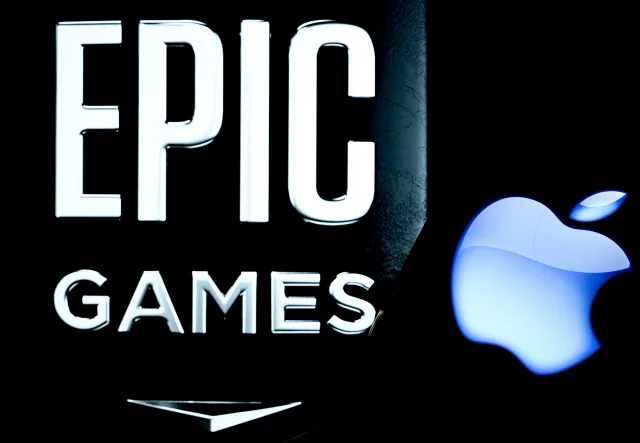Apple has finally restored its iOS developer account in the European Union, according to a recent announcement from Epic Games. This indicates that at some point this year, the developer intends to open a digital marketplace for iOS devices. What’s more, this will make it simple for customers to download Fortnite to their iPhones.
Back in January, the business announced that it will be launching Fortnite and its games shop for iOS, but it was unclear if Apple would give it access to a developer account. Developers now have a simpler time distributing apps and content across all of Apple’s platforms thanks to this account.
Fortnite will return to iOS in Europe in 2024, distributed by the upcoming @EpicGames Store for iOS. Stay tuned for details as we figure out the regulatory timeline. We'll continue to argue to the courts and regulators that Apple is breaking the law. https://t.co/MHh6EGVinC
— Epic Games Newsroom (@EpicNewsroom) January 25, 2024
This is all thanks to the EU’s new Digital Markets Act, which officially goes into effect on March 7. The law designates large services as “gatekeepers,” like Apple’s App Store, and commands them to become interoperable with competing products to remain in compliance. As far as enforcement in this case, the DMA will all developers to take payments and distribute apps on iOS from outside of official App Store. Apps sold by a third-party sales platform still need to be approved by Apple, via the company’s Notarization process, to spot and remove potentially harmful content.
There’s been a lot of bad blood between Apple and Epic ever since the latter company began using its own in-app payment option in the iOS version of Fortnite. Using it’s own payment processing, the 30 percent cut of cosmetic upgrades and power-ups it sold to Fortnite players was no longer landing in Apple’s pockets. This launched a lengthy legal battle in the US over whether or not Apple’s walled-garden approach was anticompetitive. Epic sued Apple and Apple banned Epic from its platform.
A judge recently issued a permanent injunction that gives developers a way to avoid the 30 percent cut of sales that Apple takes via its in-house payment system. This seemed to satisfy neither company. Apple wasn’t happy about being forced to allow third-party payment options on its platform. Epic was unhappy regarding the language of the injunction, in which it was decided that Apple did not have a monopoly on mobile gaming and did not violate antitrust law by banning competing app marketplaces.
Under what possible theory of antitrust regulation is it acceptable for a monopoly to decide what companies are allowed to compete with it, and on what terms they can compete? Apple makes a mockery of free market competition. https://t.co/BPEdXQ2htt
— Tim Sweeney (@TimSweeneyEpic) January 26, 2024
Apple is also allowed to arrange fee structures to dissuade developers from using a third-party payment option. It’s widely expected that the ruling, as it stands, will not reduce Apple’s current 30 percent cut of App Store sales in any meaningful way. Both companies appealed. California’s Ninth Circuit Court of Appeals upheld the district court’s rulings. The companies took their appeals to the US Supreme Court, but the court refused to hear them. That’s where we stand right now.
As all of this was happening on this side of the pond, the EU passed the aforementioned Digital Markets Act, which also forced Apple’s hand into allowing third-party storefronts on iOS devices. There’s no ongoing legal battle in Europe between the two companies, so EU residents will get to play Fortnite again. Americans will have to rely on Xbox Cloud Gaming or GeForce Now to get the popular shooter running on their Apple device.
In any event, maybe things are cooling off a bit between the two companies. It’s worth noting that Disney recently bought an equity stake in Epic Games, to the tune of $1.5 billion. Apple and Disney are known to be particularly cozy.





